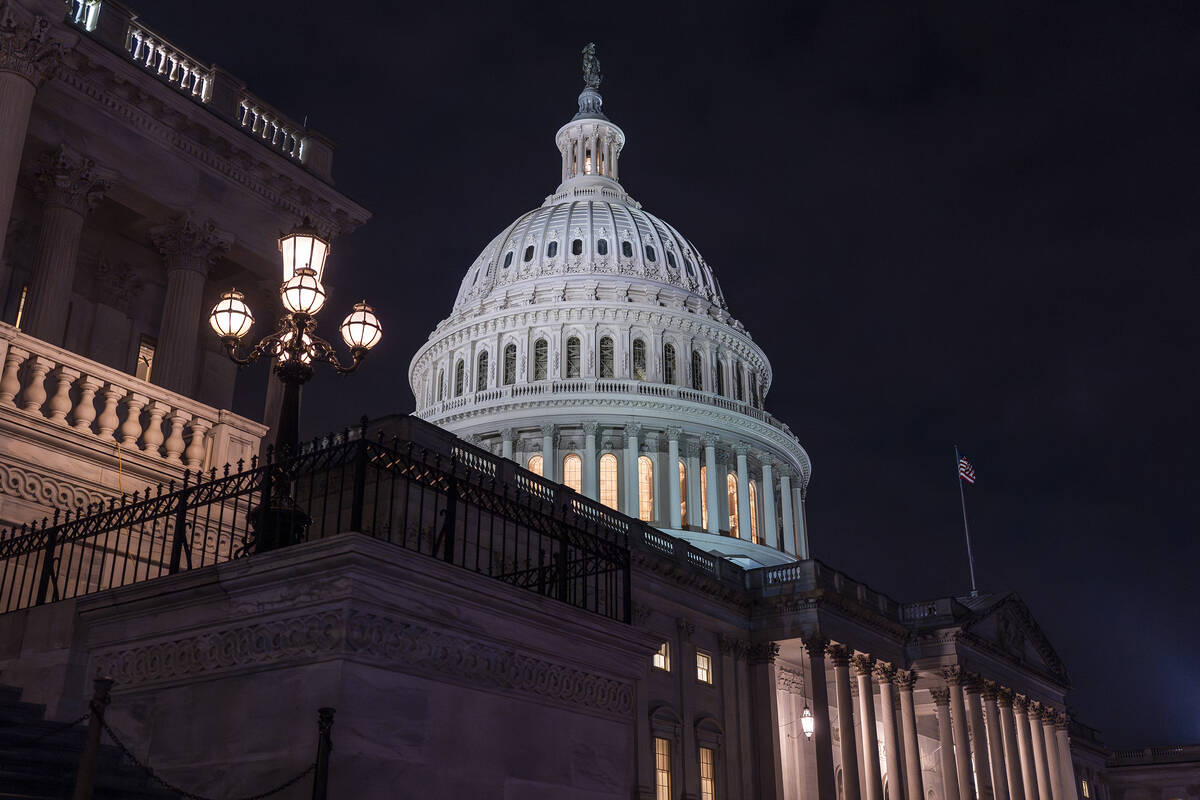COMMENTARY: In the governor’s chair: Making decisions, not speeches
“My worst day as governor,” Joe Manchin often lamented, “was better than my best day as a senator.”
The West Virginia Democrat spent a combined total of 20 years in those two jobs, so he knows what he’s talking about. And it’s hard to argue with the comment he made to Time’s Jon Meacham in 2014: “I know dysfunctional families that function better than the Senate does. It’s just crazy.”
The traditional career path in U.S. politics has been for state-based politicians, including governors, to seek a national platform. A dozen former chief executives sit in the Senate today. But the dysfunction in Washington that Manchin describes is driving a small but significant number of lawmakers to reverse that pattern, return home and run for governor.
Three senators have already announced their campaigns: Marsha Blackburn of Tennessee, Michael Bennet of Colorado and Tommy Tuberville of Alabama. Lisa Murkowski of Alaska, the daughter of a former governor, says she’s “thinking about it.” They follow former Sen. Mike Braun, who was elected governor of Indiana last year.
Noticeably, two popular Republicans, Gov. Brian Kemp of Georgia and former Gov. Chris Sununu of New Hampshire, both rejected pleas from the national party to run for the Senate. Meanwhile two rising stars among House Democrats, Abigail Spanberger of Virginia and Mikie Sherrill of New Jersey, are both leaving Capitol Hill and seeking governorships this fall.
Some politicians have always preferred to be executives instead of legislators. After all, senators make speeches, while governors make decisions. Life on Capitol Hill, however, has gotten much more frustrating in recent years for any lawmakers who believe their job is to build consensus, negotiate compromises and solve problems, especially across party lines.
Donald Trump did not start that trend, but he has severely aggravated it, usurping congressional power by governing primarily through executive orders, not legislation. The few bills that have become law passed on straight party-line votes. The legislative process, the forum where deals are brokered and lawmakers are players, has been virtually shut down.
Jessica Taylor, an analyst for the nonpartisan Cook Political Report, says more senators are running for governor than at any time in the past 90 years. “In this current political environment that we’re in, I think it just speaks to the polarization,” she told NPR. “The Senate used to be the world’s greatest deliberative body, but a lot of those people that worked across the aisle have retired or been defeated.”
Sen. Lindsey Graham, a South Carlina Republican, said he understood why fellow lawmakers such as Braun are headed home. In the Senate, he said, “It takes forever to get anything done. Mike is more of a business, action-oriented guy.”
Sen. Bennet of Colorado, who once served as superintendent of Denver’s public schools, feels particularly stymied by gridlock on Capitol Hill over public education. As he told the education website The 74: “With respect to education policy at the federal level, we’re at a moment where all there is is wreckage everywhere you turn.”
One stark measure of the growing polarization in Washington: After last year’s election, only four states now have Senate delegations split among two parties, the lowest number since senators were first elected by popular vote in 1913. As recently as 2011, 19 states elected lawmakers from rival parties.
But governors’ races are not quite so divisive. Deep-red states such as Kentucky and Kansas have Democratic governors, and blue bastions such as Vermont and New Hampshire are led by Republicans. And that difference reflects the nature of a governor’s job.
“Being in the Senate is an honor, and it’s a good job, it’s important. But I just think anybody you talk to who’s been a governor and a senator is going to tell you, being governor is really the best job,” Republican Sen. John Hoeven, who served as North Dakota governor from 2000 to 2010 before winning a Senate seat, told NBC. “You’re the CEO. You set your agenda. You can work to effectuate it. For all those reasons, I think that’s why people, given a choice, would want that job first.”
Hoeven says there’s a special bond among the former governors, from both parties, who now serve on Capitol Hill. “By nature, governors are more bipartisan because you got to work with your legislators to get something done,” he said. “You got to work with both sides.”
In Trump’s Washington, that’s virtually impossible. In growing numbers, lawmakers are realizing that if they want to work with both sides, they have to go home.
Steve Roberts teaches politics and journalism at George Washington University. Contact at stevecokie@gmail.com.

















